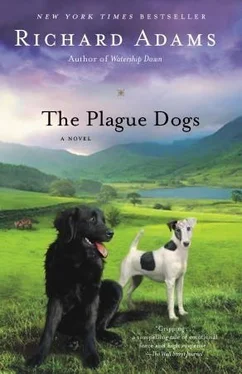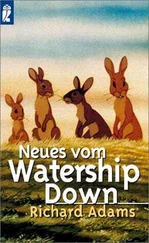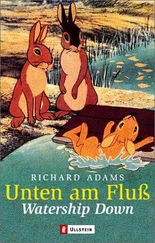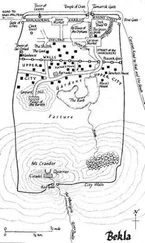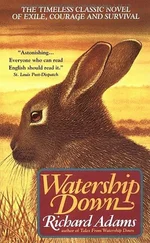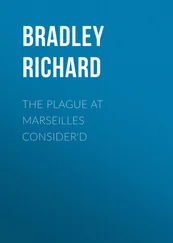Richard Adams - The Plague Dogs
Здесь есть возможность читать онлайн «Richard Adams - The Plague Dogs» весь текст электронной книги совершенно бесплатно (целиком полную версию без сокращений). В некоторых случаях можно слушать аудио, скачать через торрент в формате fb2 и присутствует краткое содержание. Город: New York, Год выпуска: 2007, ISBN: 2007, Издательство: Ballantine Books, Жанр: Природа и животные, Фэнтези, на английском языке. Описание произведения, (предисловие) а так же отзывы посетителей доступны на портале библиотеки ЛибКат.
- Название:The Plague Dogs
- Автор:
- Издательство:Ballantine Books
- Жанр:
- Год:2007
- Город:New York
- ISBN:978-0-345-49402-3
- Рейтинг книги:3 / 5. Голосов: 1
-
Избранное:Добавить в избранное
- Отзывы:
-
Ваша оценка:
- 60
- 1
- 2
- 3
- 4
- 5
The Plague Dogs: краткое содержание, описание и аннотация
Предлагаем к чтению аннотацию, описание, краткое содержание или предисловие (зависит от того, что написал сам автор книги «The Plague Dogs»). Если вы не нашли необходимую информацию о книге — напишите в комментариях, мы постараемся отыскать её.
, Richard Adams creates a lyrical and engrossing tale, a remarkable journey into the hearts and minds of two canine heroes, Snitter and Rowf, fugitives from the horrors of an animal research center who escape into the isolation—and terror—of the wilderness.
The Plague Dogs — читать онлайн бесплатно полную книгу (весь текст) целиком
Ниже представлен текст книги, разбитый по страницам. Система сохранения места последней прочитанной страницы, позволяет с удобством читать онлайн бесплатно книгу «The Plague Dogs», без необходимости каждый раз заново искать на чём Вы остановились. Поставьте закладку, и сможете в любой момент перейти на страницу, на которой закончили чтение.
Интервал:
Закладка:
“There might be something worse through the door,” said Rowf, peering into the dismal confines of the concrete huis clos surrounding them.
Snitter’s jaws worked convulsively as with an effort he converted and brought his mutilated mind in frame.
“Rowf, the water—the metal water! What could be worse than the metal water? Hours and hours of struggling in the metal water, Rowf, and in the end they’ll drown you! Think of the whitecoats, Rowf—what you told me—peering down into the tank and watching you. They aren’t masters, believe me; I’ve had a master—I know. If we could only get out of here we might find a master—who can tell?—a proper pack leader. Isn’t it worth a try?”
Rowf stood tense and hesitant in the straw. Suddenly, from somewhere up the fell outside, there came the faintest sound of rocky splashing as a yow, or Lakeland sheep, scrambled its way across a beck. Rowf gave a short, snapping bark and pushed his way through the door. Snitter followed and together, in silence save for their clicking claws, they trotted quickly down the line of pens to the swing doors separating the canine shed from the next.
It took Snitter some time to get the hang of the doors. They were light; indeed, they were portable, constructed of thick asbestos sheets on white-painted wooden frames, for Lord Plynlimmon had thought fit, when designing the block, to provide for flexibility in the subdivisioning by enabling the various sheds to be made larger or smaller at need; and accordingly not only the doors but also the pre-constructed modules of the party walls were capable (with a little trouble) of being removed and re-fixed further up or down the building, to increase or diminish the various floor areas. The doors, however, were fitted with fairly strong return springs, of the kind that cause such doors to jump back and hit smartly on the knee or in the face a man following another who is not particularly heedful or considerate.
Rowf hurled himself at the right-hand door, which swung open about six inches and then, the spring coming into its own, threw him back across the concrete floor. Growling, he went for it again, harder this time and higher up. Once more it gave and, as he dropped to the ground with his head through the narrow opening, closed upon his neck like a trap, pinning him between the two forward edges. He struggled back in silence and was about to try to seize the frame in his teeth when Snitter stopped him.
“It’s not alive, Rowf! It’s—it’s—you scratch it to be let in; but there isn’t a man on the other side, you see—”
“There’s some creature on the other side pushing it back! We’ll have to kill it—or chase it away, anyhow—but I can’t get at it.”
“Wait, wait. Let’s have a smell round.”
Snitter pressed his wet nose to the narrow, vertical chink between the two doors. The draught coming through bore smells, certainly, but nothing more alarming than birds’ droppings, feathers, grain and bran—all strong and at close quarters. He could hear, too, no more than a few yards away, the rustling and soft movements of roosting birds.
“Unless it’s a creature that has no smell, Rowf, there’s nothing but birds in there.”
A sudden, high-pitched yapping sounded from behind them. Snitter turned to see the occupant of the nearest pen, a cross-bred Pekinese, standing wide awake in a patch of moonlight and looking at them with obvious surprise. He went quickly across to the wire.
“Don’t make a row, Flatface,” he said. “You might bring the tobacco man back here.”
“What are you doing?” asked the Pekinese, nose pressed against the wire. “Why are you loose? What’s that on your head? It smells of that stuff the whitecoats put over everything.”
“It’s to keep the frost out,” answered Snitter. “My head’s a bird-table, you know. The whitecoats cover it with bread every morning and then watch while the birds come and eat it.”
“Oh, I see.” The Pekinese looked sagacious. “But how do they keep you still?”
“With chicken-wire,” said Snitter. “I dote on it, actually. My friend here dotes on it, too. He takes over when I need a rest. We’re both bird-tables through and through. Do the whitecoats go through and through? Those doors there, I mean? How do they do it?”
The Pekinese was clearly puzzled. “They made me better,” he said. “First they made me ill and then they made me better. I’ve been ill, you know.”
“I can smell that,” said Snitter. “You smell like a dog-blanket left out in the rain. Flatface, listen—does the tobacco man ever go through that door?”
“Yes, to feed the birds. It’s all birds in there. You can smell them. Besides, I’ve seen through when he opens it.”
“Through and through,” said Snitter. “How does he do it?”
“He’s usually carrying things, and he pushes it with his shoulder or his foot and then edges through sideways. Let me tell you what happened when I was ill. First of all the whitecoats—”
Snitter went back to the doors and pressed the wedge of his muzzle gently into the central crack. The right-hand door, which had the weaker spring, gave slightly, and he slowly pushed through first his jaw and then his whole head, accustoming himself to the sensation of the counter-pressure. As soon as his head was through he turned his body sideways and began to press with the weight of his flank against the flat of the door.
“Follow me right up close, old Rowf. There’s a board loose in the fence, do you see? Don’t jump at it, just push. Why, what a cloud of flies—no, it’s birds—birds!”
He eased his entire body through the door. Rowf followed him, nose to tail, and the swing doors closed behind them, cutting off the familiar smells of dog, straw and meat and exposing them, with all the suddenness of an airliner from the north discharging passengers in the tropics, to the immediate impact of strange light, strange air and strange surroundings.
The place was full of birds. They could smell, all about them, the light, sharp odour of their droppings and hear, too, the sounds, so much quicker and softer than those made by dogs, of their stirrings in the dark. A pigeon nearby preened a wing, uttered a single, sleepy “Roo-too-roo; took!” and was silent. There must be many, many birds. Pausing and listening, both dogs had the impression of a forest in which the leaves were pigeons, spray upon spray, rustling leaves receding into an airy gloom. Here and there a wiry branch creaked; here and there a fragment from a seed-trough pattered, like a fir-cone or a beech-nut, to the floor.
They had entered the pigeon aviary, reservoir of one of the more eagerly watched, important and ambitious projects in which Animal Research was engaged. The object was nothing less than to discover how and by what means pigeons exercise their homing instinct—a Promethean undertaking indeed, since the birds themselves have always been content with ignorance in the matter. The thoroughness of the experiments, devised and conducted by Mr. Lubbock, a colleague and friend of Dr. Boycott, was impressive. Here, systematically divided into groups and caged in different compartments, lived hundreds of birds, each a grain of coral in that great reef of conscious knowledge to be built by Mr. Lubbock for the good, or the advancement, or the edification—or something or other, anyway—of the human race. Of those birds which had already been released to flight at greater or lesser distances from the station, some had had one eye or both eyes occluded by special appliances; some had been fitted with minute contact lenses, to distort their vision; others had had the sensitivity of feathers, feet, nostrils, beaks, mouths or lungs impaired or destroyed before setting out; others again had undergone carefully planned conditioning designed to confuse them when exposed to normal weather conditions. In Cage 19 it rained a continuous light drizzle twenty-four hours a day. In Cage 3, which was blacked out from the rest of the aviary, there was perpetual sunshine; in Cage 11, perpetual darkness., In Cage 8 the source of light (a simulated sun) moved anti-clockwise. Cage 21 was unusually hot, Cage 16A (so termed to differentiate it, for the avoidance of possible confusion, from Cage 16, in which all the inmates had died of cold one night, necessitating total replacement) unusually cold. In Cage 32 a light wind blew from one direction night and day. Birds born in these cages had never known any other weather conditions until their time came to be released to a homing flight. Cage 9 contained a special ceiling which reproduced the night sky, but with the various constellations disordered. At the far end of the aviary was a row of individual cages, containing birds into whose heads had been grafted magnetic particles, some attractive, others repellent. Finally, there were those pigeons who had been deafened, but left with other faculties intact.
Читать дальшеИнтервал:
Закладка:
Похожие книги на «The Plague Dogs»
Представляем Вашему вниманию похожие книги на «The Plague Dogs» списком для выбора. Мы отобрали схожую по названию и смыслу литературу в надежде предоставить читателям больше вариантов отыскать новые, интересные, ещё непрочитанные произведения.
Обсуждение, отзывы о книге «The Plague Dogs» и просто собственные мнения читателей. Оставьте ваши комментарии, напишите, что Вы думаете о произведении, его смысле или главных героях. Укажите что конкретно понравилось, а что нет, и почему Вы так считаете.
